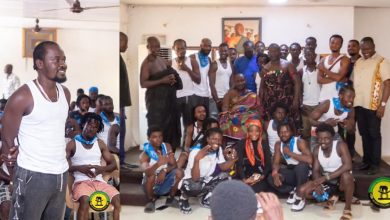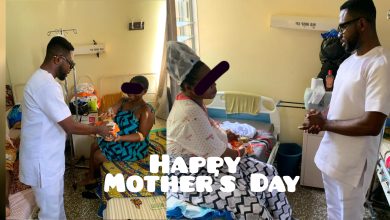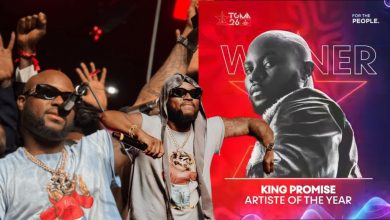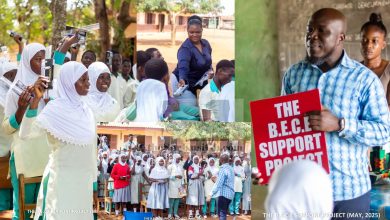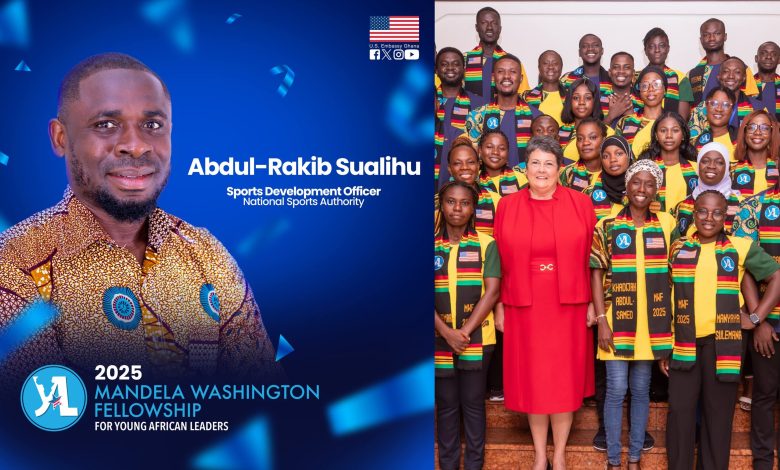
In a region where sports often take a back seat in public policy and educational priorities, Ghana’s Sports Development Officer at the National Sports Authority, Abdul-Rakib Sualihu is determined to rewrite the narrative.
His journey through the prestigious Mandela Washington Fellowship is not just a personal milestone but rather a springboard for sustainable sports development, inclusion, and youth empowerment, particularly in the underserved Ahafo Region where is posted.
Abdul-Rakib’s Fellowship journey began in August 2024, when a curious click on a fellowship link led to an intensive three-day application process. Months later, in January 2025, he interviewed in Kumasi and by March, the U.S. Embassy in Ghana confirmed what he had hoped for; selection into the Mandela Washington Fellowship.
Though initially not placed in the Professional Development Experience (PDE), his dedication paid off when a slot opened up in June. He was elated.
He was placed at the University of Minnesota, under the Leadership in Public Management track, where he represented not just his professional designation as a Sports Development Officer, but also the broader dreams of marginalized youth and underrepresented sports communities in Ghana.
Central to Abdul-Rakib’s Fellowship experience was the development of a Focus Project; a capstone designed to channel his learnings and experience into actionable initiatives back home. His project aimed at increasing female and participation in sports and physical education, a long-standing issue in many parts of Ghana.
However, the scope of his project goes far beyond gender. It addresses six interrelated challenges:
- Exclusion of persons with disabilities in school and community sports.
- Neglect of physical education as a key part of holistic child development.
- Lack of sports infrastructure and equipment in rural communities.
- Insufficient training for coaches and teachers, especially in inclusive and modern methods.
- Cultural barriers limiting girls’ participation in sports.
- Weak community involvement in sustaining grassroots sports initiatives.
Each of these challenges speaks to structural and cultural bottlenecks that have persisted for decades, especially in regions like Ahafo, where Abdul-Rakib is stationed.
The Ahafo Region is rich in potential yet under-resourced in terms of sports infrastructure and opportunities. Many schools do not have physical education teachers, equipment is scarce, and societal expectations continue to restrict girls from active participation in sports.
Abdul-Rakib’s project could be a game-changer here for several reasons:
- Empowering Girls: By promoting female participation, the project helps to break harmful stereotypes and introduces sports as a vehicle for confidence, leadership, and health among girls.
- Inclusive Sports Programming: Children with disabilities, often left out, would have access to physical activities tailored to their abilities. This creates a culture of inclusion and helps combat stigmatization.
- Teacher and Coach Development: Training local educators in inclusive, adaptive methods equips them to reach more students and improves the overall quality of physical education in schools.
- Community Ownership: Engaging community leaders and parents ensures that sports initiatives become sustainable, locally driven, and culturally relevant.
- Youth Empowerment and Crime Prevention: Organized sports provide structure, discipline, and opportunity for youth; acting as a buffer against anti-social behavior, teenage pregnancy, and school dropout.
While rooted in Ahafo, Abdul-Rakib’s project has the potential to influence national sports policy. By aligning with Ghana’s educational and health goals, his advocacy can feed into curriculum reforms, teacher training modules, and decentralized sports development programs.
His experience at the Mandela Washington Fellowship gives him not only the tools but the global network to advocate for such changes.
Abdul’s Mandela Washington Fellowship journey is more than a personal success, it is a clarion call for reimagining sports as a tool for development, inclusion, and equity in Ghana. His vision, if supported and implemented, could serve as a replicable model across other regions.
As he returns to Ghana, the real work begins with transforming policy, shifting mindsets, and building a legacy where every child, regardless of gender, ability, or location, has the right and opportunity to play.

